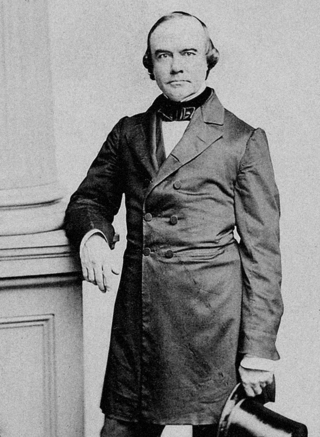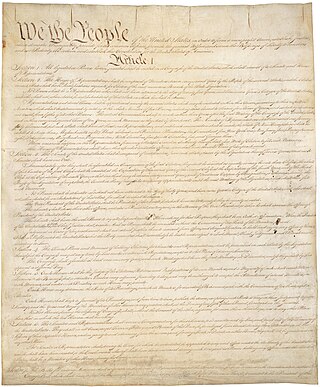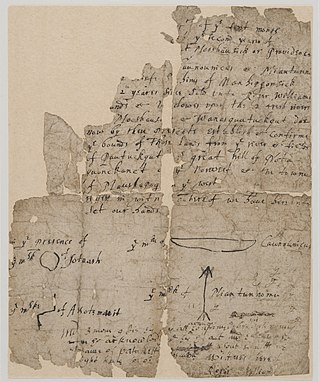The Dormant Commerce Clause, or Negative Commerce Clause, in American constitutional law, is a legal doctrine that courts in the United States have inferred from the Commerce Clause in Article I of the US Constitution. The primary focus of the doctrine is barring state protectionism. The Dormant Commerce Clause is used to prohibit state legislation that discriminates against, or unduly burdens, interstate or international commerce. Courts first determine whether a state regulation discriminates on its face against interstate commerce or whether it has the purpose or effect of discriminating against interstate commerce. If the statute is discriminatory, the state has the burden to justify both the local benefits flowing from the statute and to show the state has no other means of advancing the legitimate local purpose.
Brandenburg v. Ohio, 395 U.S. 444 (1969), is a landmark decision of the United States Supreme Court interpreting the First Amendment to the U.S. Constitution. The Court held that the government cannot punish inflammatory speech unless that speech is "directed to inciting or producing imminent lawless action and is likely to incite or produce such action". Specifically, the Court struck down Ohio's criminal syndicalism statute, because that statute broadly prohibited the mere advocacy of violence. In the process, Whitney v. California (1927) was explicitly overruled, and Schenck v. United States (1919), Abrams v. United States (1919), Gitlow v. New York (1925), and Dennis v. United States (1951) were overturned.

Benjamin Robbins Curtis was an American lawyer and judge who served as an associate justice of the United States Supreme Court from 1851 to 1857. Curtis was the first and only Whig justice of the Supreme Court, and he was the first Supreme Court justice to have a formal law degree. He is often remembered as one of the two dissenters in the Supreme Court's infamous 1857 decision Dred Scott v. Sandford.

The United States Gold Reserve Act of January 30, 1934 required that all gold and gold certificates held by the Federal Reserve be surrendered and vested in the sole title of the United States Department of the Treasury. It also prohibited the Treasury and financial institutions from redeeming dollar bills for gold, established the Exchange Stabilization Fund under control of the Treasury to control the dollar's value without the assistance of the Federal Reserve, and authorized the president to establish the gold value of the dollar by proclamation.
United States v. Booker, 543 U.S. 220 (2005), is a United States Supreme Court decision on criminal sentencing. The Court ruled that the Sixth Amendment right to jury trial requires that other than a prior conviction, only facts admitted by a defendant or proved beyond a reasonable doubt to a jury may be used to calculate a sentence exceeding the prescribed statutory maximum sentence, whether the defendant has pleaded guilty or been convicted at trial. The maximum sentence that a judge may impose is based upon the facts admitted by the defendant or proved to a jury beyond a reasonable doubt.
A plurality decision is a court decision in which no opinion received the support of a majority of the judges.
De Jonge v. Oregon, 299 U.S. 353 (1937), was a case in which the Supreme Court of the United States held that the Fourteenth Amendment's due process clause applies the First Amendment right of freedom of assembly to the individual U.S. states. The Court found that Dirk De Jonge had the right to speak at a peaceful public meeting held by the Communist Party, even though the party generally advocated an industrial or political change in revolution. However, in the 1950s with the fear of communism on the rise, the Court ruled in Dennis v. United States (1951) that Eugene Dennis, who was the leader of the Communist Party, violated the Smith Act by advocating the forcible overthrow of the United States government.
Sandra Lea Lynch is an American lawyer who serves as a senior United States circuit judge of the United States Court of Appeals for the First Circuit. She is the first woman to serve on that court. Lynch served as chief judge of the First Circuit from 2008 to 2015.

In United States law, a federal enclave is a parcel of federal property within a state that is under the "Special Maritime and Territorial Jurisdiction of the United States". These enclaves are used for the many different functions of the United States federal government, and include post offices, arsenals, dams, road, etc., and usually are owned, secured and administered by the U S. federal government itself. The United States in many cases has received similar jurisdictional authority over privately owned properties which it leases, or privately owned and occupied properties which are located within the exterior boundaries of a large area as to which a state has ceded jurisdiction to the United States.
United States v. Williams, 553 U.S. 285 (2008), was a decision by the Supreme Court of the United States that a federal statute prohibiting the "pandering" of child pornography did not violate the First Amendment to the United States Constitution, even if a person charged under the code did in fact not possess child pornography with which to trade.

The United States attorney for the District of Columbia(USADC) is responsible for representing the federal government in the United States District Court for the District of Columbia. The U.S. Attorney's Office for the District of Columbia has two divisions, the Civil Division and the Criminal Division. The Civil Division is responsible for representing federal agencies in the U.S. District Court for the District of Columbia and in appeals before the U.S. Court of Appeals for the District of Columbia Circuit.

The law of the United States comprises many levels of codified and uncodified forms of law, of which the most important is the nation's Constitution, which prescribes the foundation of the federal government of the United States, as well as various civil liberties. The Constitution sets out the boundaries of federal law, which consists of Acts of Congress, treaties ratified by the Senate, regulations promulgated by the executive branch, and case law originating from the federal judiciary. The United States Code is the official compilation and codification of general and permanent federal statutory law.

The United States was the first jurisdiction to acknowledge the common law doctrine of aboriginal title. Native American tribes and nations establish aboriginal title by actual, continuous, and exclusive use and occupancy for a "long time." Individuals may also establish aboriginal title, if their ancestors held title as individuals. Unlike other jurisdictions, the content of aboriginal title is not limited to historical or traditional land uses. Aboriginal title may not be alienated, except to the federal government or with the approval of Congress. Aboriginal title is distinct from the lands Native Americans own in fee simple and occupy under federal trust.

The Torture Victim Protection Act of 1991 is a US statute that allows for the filing of civil suits in the United States against individuals who, acting in an official capacity for any foreign nation, committed torture and/or extrajudicial killing. The statute requires a plaintiff to show exhaustion of local remedies in the location of the crime, to the extent that such remedies are "adequate and available." Plaintiffs may be U.S. citizens or non-U.S. citizens.
The Vicinage Clause is a provision in the Sixth Amendment to the United States Constitution regulating the vicinity from which a jury pool may be selected. The clause says that the accused shall be entitled to an "impartial jury of the State and district wherein the crime shall have been committed, which district shall have been previously ascertained by law". The Vicinage Clause limits the vicinity of criminal jury selection to both the state and the federal judicial district where the crime has been committed. This is distinct from the venue provision of Article Three of the United States Constitution, which regulates the location of the actual trial.
Several statutes, mostly codified in Title 18 of the United States Code, provide for federal prosecution of public corruption in the United States. Federal prosecutions of public corruption under the Hobbs Act, the mail and wire fraud statutes, including the honest services fraud provision, the Travel Act, and the Racketeer Influenced and Corrupt Organizations Act (RICO) began in the 1970s. "Although none of these statutes was enacted in order to prosecute official corruption, each has been interpreted to provide a means to do so." The federal official bribery and gratuity statute, 18 U.S.C. § 201, the Foreign Corrupt Practices Act (FCPA) 15 U.S.C. § 78dd, and the federal program bribery statute, 18 U.S.C. § 666 directly address public corruption.

During the tenure of Morrison Waite as Chief Justice of the Supreme Court of the United States, the Supreme Court heard an unprecedented volume and frequency of criminal cases. In just fourteen years, the Court heard 106 criminal cases, almost as many cases as the Supreme Court had heard in the period from its creation to the appointment of Waite as Chief Justice. Notable cases include United States v. Cruikshank (1875), United States v. Reese (1875), Reynolds v. United States (1878), Wilkerson v. Utah (1879), the Trade-Mark Cases (1879), Strauder v. West Virginia (1880), Pace v. Alabama (1883), United States v. Harris (1883), Ex parte Crow Dog (1883), Hurtado v. California (1884), Clawson v. United States (1885), Yick Wo v. Hopkins (1886), United States v. Kagama (1886), Ker v. Illinois (1886), and Mugler v. Kansas (1887).
Robin L. Williams is an American businessman and former member of the Georgia House of Representatives.






